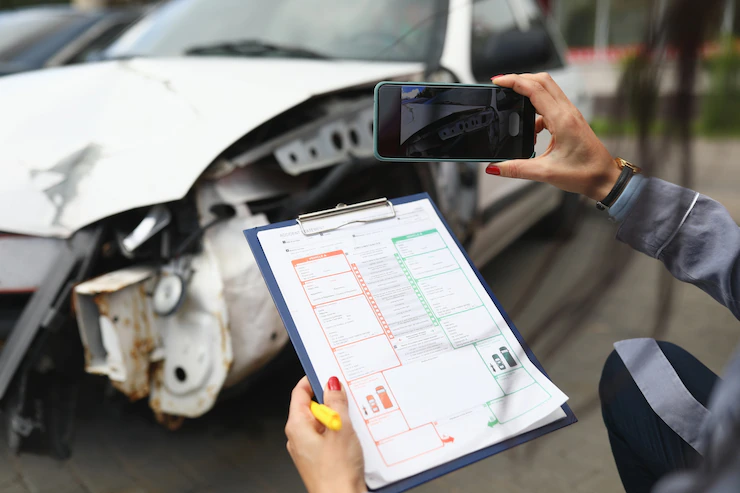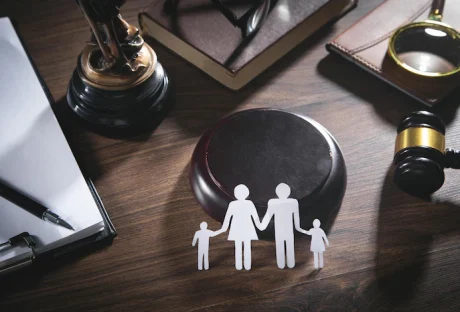Car accidents can be complex and stressful situations, but what happens when you’re involved in a single-car accident? Can you file a claim in such cases?
The short answer is yes, you can often file a claim in a single-car accident, but the process and outcome will depend on various factors, including the circumstances of the accident, the type of insurance you have, and the applicable laws in your jurisdiction. Here, we want to explore the ins and outs of filing a claim in a single-car accident.
Determining Liability
The first step in filing a claim for a single-car accident is to determine liability. Liability refers to who is legally responsible for the accident. In a typical two-car accident, liability is usually assigned to one of the drivers involved. In a single-car accident, you are essentially claiming that your own actions or external factors caused the accident. Liability can be established in various ways:
Negligence: If you were negligent in your actions, such as speeding, running a red light, or texting while driving, your own negligence may be the cause of the accident.
Mechanical Failure: If a mechanical failure in your vehicle, such as brake failure, caused the accident, you may have a claim against the vehicle manufacturer or a maintenance provider in the form of a product liability claim.
Road Conditions: Poor road conditions, such as potholes, poorly marked construction zones, or lack of proper signage, can lead to accidents, and you may have a claim against the responsible government agency.
Wildlife or Weather: If an animal darted in front of your car, or adverse weather conditions caused the accident, you may have a claim if it can be shown that you reacted reasonably given the circumstances.
Insurance Coverage
The ability to file a claim for a single-car accident largely depends on the type of insurance coverage you have. There are several types of insurance coverage that may come into play:
Liability Insurance: This covers damages and injuries you cause to others. If you were at fault in a single-car accident, your liability insurance may cover damages to others involved or their property.
Comprehensive Insurance: This coverage typically includes damages to your vehicle resulting from non-collision events, such as hitting an animal or damage from natural disasters. If your single-car accident was caused by an event covered by your comprehensive insurance, you may be able to file a claim.
Uninsured/Underinsured Motorist Coverage: This coverage can apply to a single-car accident if the responsible party is uninsured or underinsured or if you are the victim of a hit-and-run.
Gathering Evidence
To strengthen your claim in a single-car accident, it’s crucial to gather evidence. This may include:
Witness Statements: If there were any witnesses to the accident, obtain their contact information and statements about what they observed.
Police Report: If the police were called to the scene, a police report will be generated. This report can be valuable in documenting the accident and its cause.
Photos and Videos: Take pictures and videos of the accident spot, including your vehicle’s damage, the road situation, and any relatable traffic signals or road signs.
Maintenance Records: If mechanical failure is a potential cause of the accident, provide maintenance records to show that your vehicle was in good working order.
Medical Records: If you sustained injuries, keep records of medical treatment and expenses related to the accident.
Filing A Claim
Once you’ve determined liability and gathered the necessary evidence, it’s time to file a claim with your insurance agency. Be prepared to provide detailed information about the accident, including the date, time, location, and any relevant circumstances. Your insurance company will investigate the claim and, depending on the circumstances, may approve it.
Possible Challenges
As mentioned by the Chicago car accident lawyers at Smith LaCien LLP, a claim for a single-car accident can be more challenging than in two-car accidents because there’s no other driver’s insurance to turn to. You may encounter several challenges:
Policy Limitations: Your policy may have limitations on the types of single-car accidents it covers. Read your policy carefully to understand the extent of your coverage.
Deductibles: You may have to pay a deductible before your insurance coverage kicks in. Make sure you understand your policy’s deductible requirements.
Coverage Denial: Insurance companies may deny a claim if they believe the accident was the result of intentional or reckless behavior or if the event is not covered by your policy.
Disputes: If your claim is denied or you’re unhappy with the insurance company’s offer, you may need to engage in negotiations or, in some cases, consider legal action.
Legal Considerations
If your single-car accident claim is denied, or if you believe you’re not being treated fairly by your insurance company, you may need to seek legal counsel. An attorney experienced in personal injury and insurance claims can provide guidance on how to proceed and help you understand your legal rights.
Filing a claim in a single-car accident is possible, but the outcome depends on various factors, including liability, insurance coverage, and the circumstances of the accident. If you find yourself in such a situation, it’s essential to act promptly, gather evidence, and understand the terms of your insurance policy. Additionally, consider consulting with legal experts to ensure that your rights are protected and that you receive fair compensation for any damages or injuries resulting from the accident.
Read Also:
- Why It’s So Important To Hire A Lawyer After A Fatal Car Accident
- Car Accidents From Hitting Florida’s Wildlife
- Car Accidents in California- What Does the Law Say?























